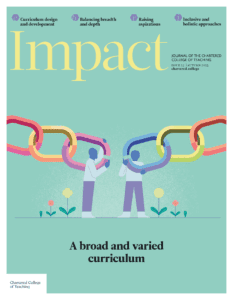ADAM DICKSON, PHD RESEARCHER, DURHAM UNIVERSITY, UK
Introduction
Traumatic histories present profound pedagogical and ethical challenges. While cultural memory is integral to fostering historical consciousness, there is a risk of emotional distress and retraumatisation of those adjacent to narratives. Practitioners therefore must navigate a difficult balance: preserving rigour while ensuring psychological safety. This article proposes a trauma-informed framework to support navigating these curriculum tensions, emphasising preparation, delivery, resilience and reflection. With contemporary literature and trauma-informed pedagogy, this provides practical, research-informed strategies for integrating ethical, trauma-sensitive approaches into teaching, while retaining the analysis and critical inquiry demanded (Cavanaugh, 2016).
Balancing accuracy and wellbeing
Historical accuracy demands engagement with oppression and violence, yet unfiltered exposure to histories can evoke str
Join us or sign in now to view the rest of this page
You're viewing this site as a guest, which only allows you to view a limited amount of content.
To view this page and get access to all our resources, join the Chartered College of Teaching (it's free for trainee teachers and half price for ECTs) or log in if you're already a member.











